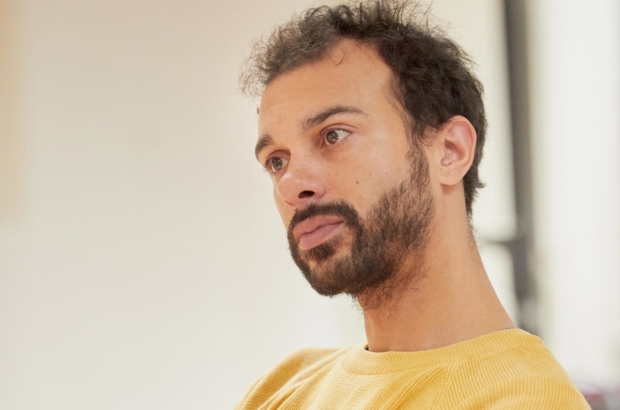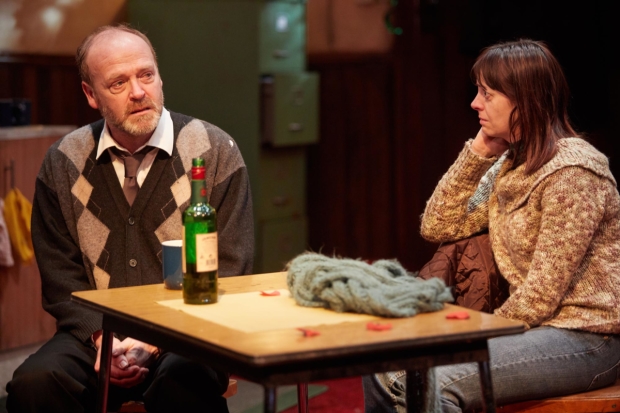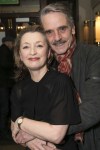Matthew Xia: 'Without schemes like the Jerwood programme a kid like me wouldn't get to play in these theatres'
The director talk about life after the Royal Exchange, why Conor McPherson’s play ”Dublin Carol” resonates with him and how he became a DJ and theatremaker

© Mark Douet
The director Matthew Xia has had a remarkably polymathic career so far, succeeding both as a DJ and a respected director. In recent years he’s set DJ-ing to one side in favour of directing and has been working as associate artistic director at the Royal Exchange Manchester. Shows he has directed include Into the Woods, the Bruntwood Prize-winning Wish List, Blue/Orange, which starred the recently Oscar nominated Daniel Kaluuya, and Sizwe Banzi is Dead. He left the Royal Exchange last year and embarked once again on a freelance career, which begins at the Sherman Theatre in Wales with a production of Conor McPherson’s Dublin Carol. Here he talks about what else he’s planning and how he managed to carve out a job as a director despite never having gone to university.
Dublin Carol is not one of Conor McPherson’s most famous plays, what is it about?
The story is basically about an alcoholic undertaker John and as with all Conor McPherson stuff you get some brilliant storytelling. In the second act the undertaker is confronted with the choices and mistakes he has made about his life. It’s a riff on Dickens’ A Christmas Carol: can a man of ill repute change his past, become somebody different, somebody better? It is hilarious and heartbreaking.
Why did you want to do the piece?
Sherman Theatre's artistic director Rachel O’Riordan and I started talking about small plays for the studio and I think Rachel feels quite intimately connected to it as a piece. I have certainly lost family members to addiction. I think addiction is a constant threat: the way people fall into patterns of behaviour can be so every day.
Which is obviously central to the play…
Yes. I don’t want to give too much away, but the second act of the play has someone coming back to John from his past. I very recently reconnected with my father, who I had not seen in about 12 years. So I connected with that. It’s about leopards changing spots and whether someone is the same person they were ten years ago.
You’ve now left the Royal Exchange after three and a half years there, how does it feel?
It is quite liberating, and absolutely petrifying. I was a freelancer before for about 15 years, but the big change for me in the last three years is having a small child, who would freeze or starve if we don’t feed her or put a roof over her head. So the pressure to make sure I have work lined up is quite different. I’m actually going back there to stage Frankenstein after this, so it’s like a break up where you have to go back and get your sh*t out of their house.

© Mark Douet
What do you think you’ve learnt most from being at the Exchange?
The single biggest thing it taught me was how to run a huge, national, publicly funded arts organisation. And the bravery required to make a venue become an industry leader like the Royal Exchange is under artistic director Sarah Frankcom. Ultimately I want to be an artistic leader, so it’s about having a more refined understanding of the procedures required to make that happen. The other thing is that I was able to make my first main house large-scale show at the theatre. Sarah has this brilliant theory which is that an artist should never exist within their comfort zone. And so she is always pushing artists to test themselves.
Do you DJ still?
I am semi-retired. I sound like Jay Z. I DJ'ed at the Paralympic Opening Ceremony on my 30th birthday in the Olympic stadium and I thought: I think I will make this gig my last. I have done a few since then, but it’s for people I care lots about.
How did you move into DJing and theatre?
They started at a similar time, around the ages of 11, 12 and 13. I started going to my local youth theatre at Theatre Royal Stratford East and I fell in love with theatre and also hip-hop. So I started a rap group with my friends. Stratford East asked if I could write music for productions and it went from there. ULTZ the designer said he thought the poetic arias in Jean Genet’s The Blacks really allies with late '80s early '90s political hip hop and I said: 'I think you might be right'. He asked me to co-direct with him. It's been gradual and organic and fuelled by a love of music and theatre, which I think is a love of storytelling. And of facilitating other people’s stories.
You won the Genesis Award and were on the Regional Theatre Young Director programme – how do these schemes help, do you think?
I was really assisted and helped by them: the RTYDS, the Genesis network, the Jerwood Award. Without those schemes I don’t think a mixed race, working class kid from the East End of London would get to come and play in some of these theatres I am playing in. I didn’t go to university, so I don’t have the education that people might expect a theatre director to have. It’s interesting to look at other people who have trodden the more traditional path of English at Cambridge and feeling entitled enough to write lots of letters to try to assist people. I would never feel entitled to write a letter to anybody to ask for anything, because the working class chip on my shoulder says no.
So what’s after Dublin Carol?
We have Frankenstein, and then I’m doing the Alfred Fagon Award-winning play Shabeen, starring Karl Collins and someone I can’t say yet. That will be a bit of a homecoming, as it opens in Nottingham and then transfers to Stratford East.
Dublin Carol continues at the Sherman Theatre until 17 February. Frankenstein runs at Royal Exchange Manchester from 9 March to 14 April.



















